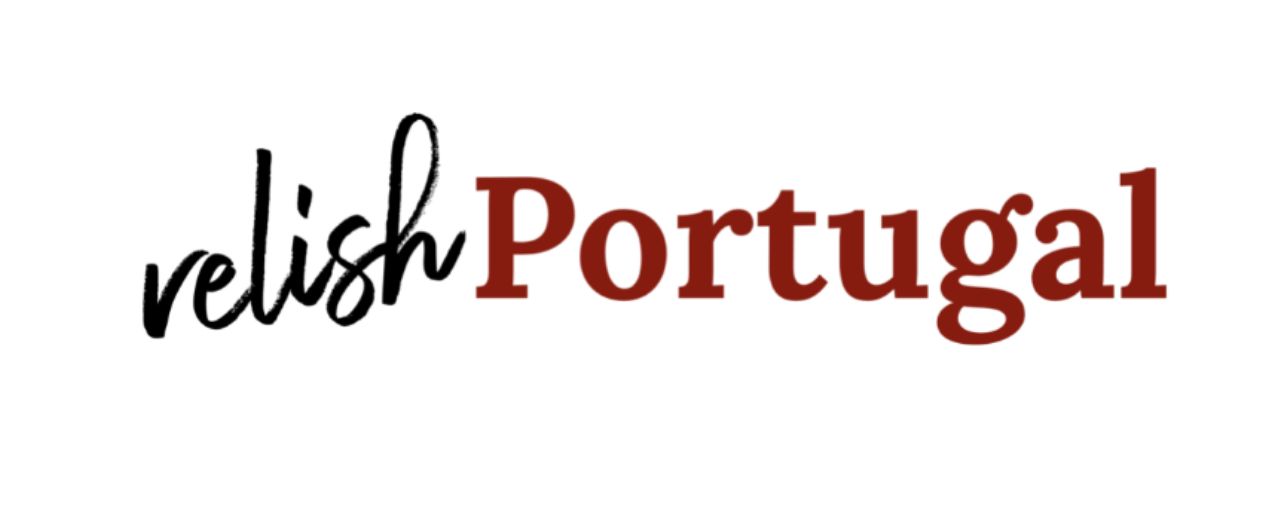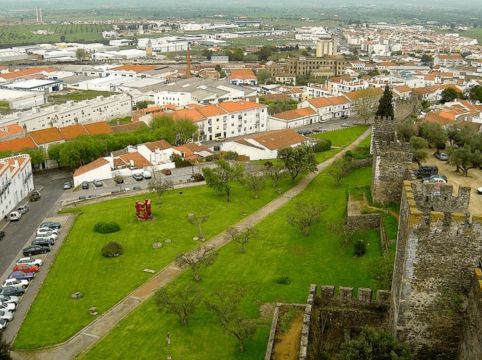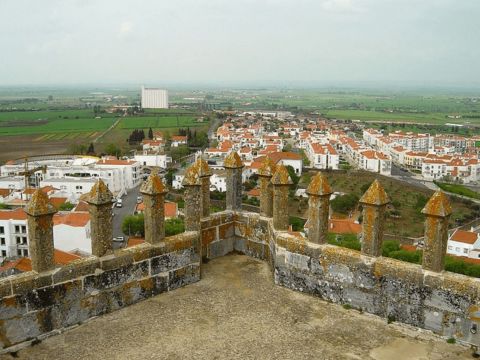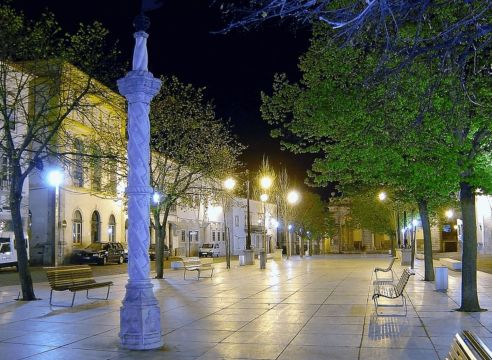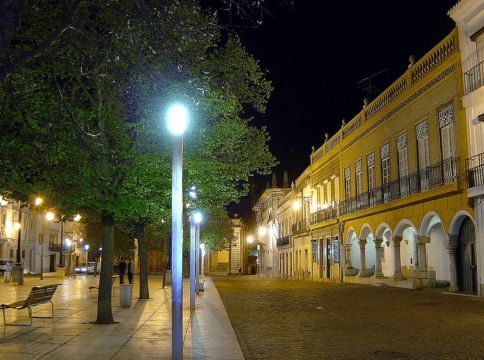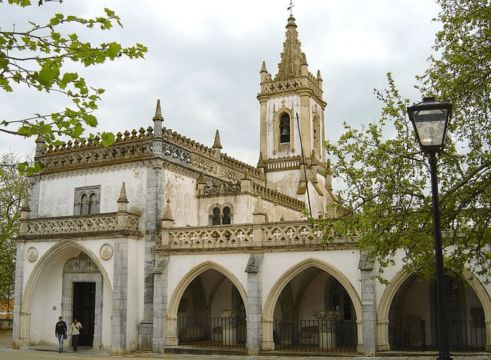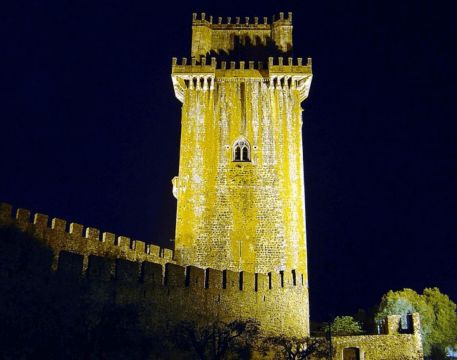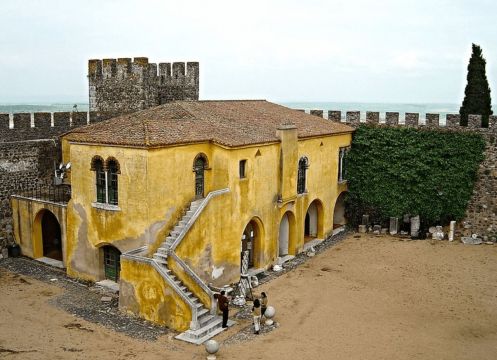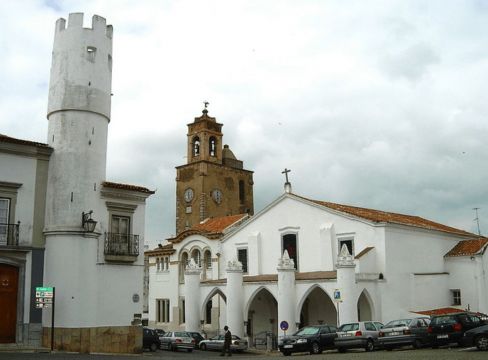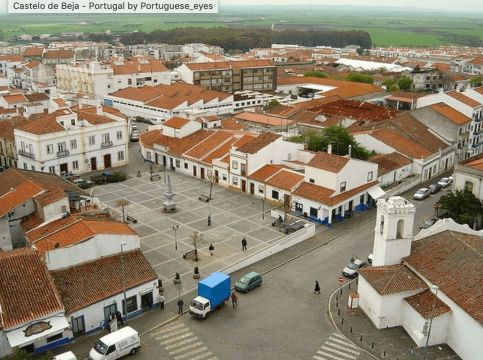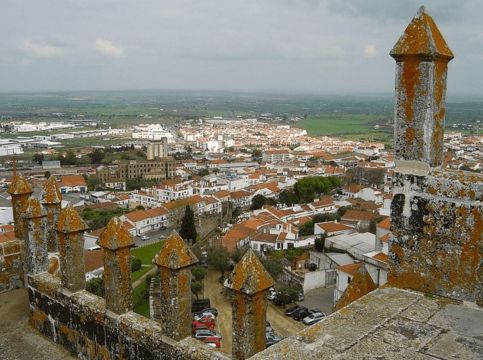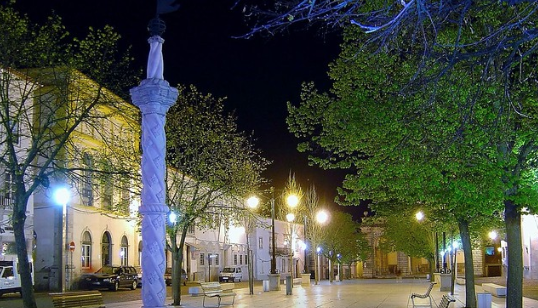
Beja is Portugal’s penultimate southernmost district, synonymous with the Alentejo as a historical and regional location. With 14 municipalities and 100 parishes, Beja has just over 150,000 inhabitants within its just under 4,000 square miles, giving it a very low population density.
You may hear this area referred to as the ‘Planície Dourada’ (Golden Plain) a romantic and touristic description, meaning the ‘sea of wheat fields’, a visual clue to the area’s agricultural heritage and dominance.
The capital city carries the district name. Beja is sometimes seen as a poor relation to Évora, a point of some contention in Alentejano culture, and carries around a quarter of the district’s population.
A mild Mediterranean climate awaits you in this part of Portugal, offering generally mild, quite rainy winters and sunny and often, very hot summers. Close to 3,000 hours of sunshine can be experienced in this vicinity, so it’s better suited to sun-lovers than those who prefer to cool down rather than warm up!
Beja city is often the hottest in the country, and even the Iberian Peninsula, with 80 days recording more than 30°C, and a record high of 45°C.
Considered to be part of the ‘breadbasket’ of Portugal, you get a real sense of space, tradition and history here where the best of Portuguese food and farming abide. Driving through the delightful, open countryside (perhaps on Portugal’s ‘Route 66’), the E.N.2, you’ll notice that local life is premised on agriculture, livestock and forestry, most remarkably cork, one of the nation’s most iconic natural resources.
Cork, or ‘sobreiro’ as we Portuguese call it, has been grown commercially here for over three centuries, in which time no effective machine method has been created. Mid-summer cork oak bark stripping is carried out by locals using locally-produced hand axes, from which the tree recovers. Each mature tree can produce about 4,000 corks, with the overall industry providing work for around 60,000 people in total, NO SCREW TOPS HERE PLEASE!
Castro Verde is probably the best-connected of Bejan cities with its location on the North-South corridor. Faro airport is only 100km from here, Lisbon 190km, and Seville 270km away to the East. Principal routes are the E.N. 123 for Ourique and Mértola; and the A2 and I.C.1 for Lisbon and the Algarve. Almodôvar sits close to the E.N.2 (‘Route 66’), and Beja and Évora are connected by the I.P.2.
Public transport is fairly thorough, if not frequent, as you might expect in such a sparsely populated area, connecting the cities of Beja, Évora, Lisbon and the Algarve, as well as north towards Tomar, Coimbra, Porto and Braga.
Beja, on its border with Evora district, has the Alqueva Dam, an important irrigation and hydroelectric generating facility. The dam exploits the Guadiana River, the fourth-longest in the Iberian peninsula, which can also be experienced in the town of Serpa, where the Beja district neighbours Spain.
Interestingly, you’ll find a Cuba in the Beja district. When a group of academics once made a case for Columbus being Portuguese, this was said to be his birthplace, after which he would name a Caribbean island. On this basis, a statue honouring him can be found here.
Odemira municipality, the largest in Portugal by area, is blessed with countless wild beaches that are something of a Portuguese secret. It was also a nexus for Dutch and German settlers. Here you’ll also find major agricultural companies such as Vitacress, a global salad producer, and in Zambujeira do Mar, the Festival do Sudoeste, one of the largest rock festivals in Europe.
Castle hunters will delight in Beja district's excellent collection, with notable specimens to be found in Alvito, Aljustrel and Mértola, which also hosts the Festival Islâmico de Mértola. A festival that celebrates the Islamic cultural connection between Islam and the town.
In terms of educational facilities, there’s the Polytechnical Institute of Beja (Instituto Politécnico de Beja) which has a number of sites and around 3,500 students.
Housing prices vary greatly in this district, so expect to pay anywhere between € 250 and € 1200 per square metre when purchasing, depending on where and what you buy in the district.
Beja is one of Portugal's great treasures and a must-look for any potential buyer.
For help with EU Legislation regarding all aspects of living and working within the EU, please use the links below.
EU Help in Your Own Language
EU Help and Advice: Doing Business
EU Help and Advice: Life and Travel
If you are planning a trip to view properties in this District and need help or guidance, get in touch Contact us and we will put you in touch with a property expert that speaks your language.
For a detailed look at the area topography please click here
If you are planning a trip to view properties in this District and need help or guidance, get in touch Contact us and we will put you in touch with a property expert that speaks your language. For more factual information regarding Portugal, we recommend that you join and view our resource partner.
This district is sponsored by our Legal Partner, our Foreign Exchange Partner and our Official Food Partner.
If you are looking for qualified mortgage advice we recommend using Portugal Mortgage Brokers our approved Mortgage Partner.




